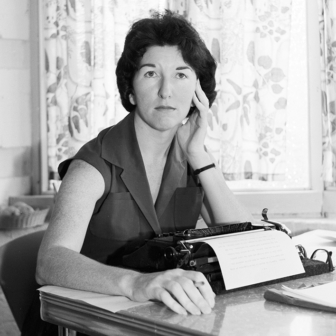Clem Christesen, the founding Meanjin editor who ran the magazine for thirty-four years, once said that “culture is the permanent part of a nation.” It was a perceptive observation, affirming Australia at a time when it was fighting the Japanese, and needed to develop an awareness of what was distinctive about our country. But recently much of this has gone into reverse. The arts and the humanities are increasingly deemed surplus to requirements.
The present wave began with Scott Morrison’s “Job-ready Graduates” scheme of 2021. The aim was to encourage students to enrol in STEM subjects (science, technology, engineering and maths), since these fields would progress Australia in the world of the internet and AI. It also enabled the Libs to give the humanities a sock in the eye. (Many of them are allergic to the very name “union,” applied to student bodies.) So while fees for a maths course were dropped by 59 per cent, those for journalism, communications and media studies were raised by 117 per cent. Tellingly, the impact on enrolments were minimal: it has been estimated that only 1.5 per cent of students swapped fields in response. STEM enrolments had been self-sifted. People know their own aptitudes.
Some of these lie in music. In Canberra, ever since the freestanding School of Music was absorbed by the ANU some years ago, there has been increasing tension between the two. Now, as part of the ANU’s plans to scale down operations in view of budgetary considerations, the school is being squelched into a new School of Creative and Cultural Practice. No more traditional one-to-one teaching, essential for advanced instrumentalists; just a gutted Bachelor of Music.
(It’s worth adding that the school has had much closer links with the Canberra community than university departments generally: children are sent there for lessons, adults attend concerts. Fears are being expressed that with the staff reductions, the Canberra Symphony Orchestra may be forced to close.)
Turning to the ANU more generally, we learned a few months ago of additional plans to retrench staff, abolish the Humanities Research Centre, downsize the Australian Dictionary of Biography, and effectively close the Australian National Dictionary. All of these are flagship projects of the ANU. The Humanities Research Centre enjoys a high reputation from the way it brings international and Australian scholars together. The ADB, now in its sixtieth year, continues to record lives great and small — from premiers to postmistresses — and is first port of call for anybody seeking reliable information on figures from the past. (Women and Indigenous people have recently received close attention, after earlier neglect.) Similarly the Australian National Dictionary, most recently issued in an impressive two-volume edition, provides a national service in recording the English spoken here, soon after it appears, while also recuperating words that have been discarded. Our national self-respect, and endorsement of the language we have come speak, requires the project to continue.
It tends to be forgotten now, but the ANU began as an intentionally elite university. People were conscious of the “brain drain”: in part the project was designed to stem that. Not that bright students would be discouraged from essential research visits overseas: the difference now was that they could often be supervised from Australia. Indeed the ANU was entirely a postgraduate university to begin with: undergraduates were catered for by a branch of Melbourne University (Canberra University College). It was not until 1960 that the two institutions were amalgamated, a bipartite structure lingering for a good while longer.
Given the high purpose of the original project — not least to encourage research in Australia — it comes as no surprise that parliament makes an annual National Institution Grant Allocation, worth $193.5 million (2024 figures) to the ANU. One is left gasping at the way the university has turned its back on the specificity of this allocation, proceeding to wipe out, or substantially reduce, the effectiveness of important national institutions. For the managers, it’s a simple case of their not being sufficiently aligned with the university’s strategic aims.
And now the University of Melbourne, or rather its subsidiary Melbourne University Press, has pulled the plug on Meanjin. (Until very recently, the magazine was the way by which the Indigenous name for Brisbane was best known.) Under its founding editor, Clem Christesen — the great helmsman for thirty-four years — it gained an international reputation, publishing work by leading writers and intellectuals, including Jean-Paul Sartre, Bertolt Brecht, Ezra Pound (a premiere) and Anaïs Nin. These were interleaved with work from Australian writers — the list is as long as your arm — and, importantly, think pieces about where the country was headed. In Clem’s view a literary magazine should not be exclusively literary: the important thing was the quality of the writing. Fiction and non-fiction were placed side by side, to take the temperature of the times. (Those particularly interested might look at my recent book, Emperors in Lilliput.)
Succeeding editors (there have been eleven) took up the challenge in various ways. I put out an “Aboriginal” Issue in 1977, highlighted women’s writing, and wanted to have a Greek issue and an Italian issue. But it was then a little too soon: there was a lack of sufficient suitable material. Other editors left their imprint on the magazine in various ways. For despite the changes in management (Meanjin was ultimately placed under the umbrella of MUP), the principle of editorial independence was scrupulously maintained.
Hence we may believe Warren Bebbington, the chair of the MUP board, when he says that Meanjin has been shut down for financial reasons. My reading of the situation is that Esther Anatolitis probably moved too quickly in changing the magazine: it is important to maintain existing subscribers until there is a cohort of new ones.
So, a dismal triad: Morrison’s punitive fees for non-science subjects, the ANU’s attack on the arts and humanities, and Melbourne University terminating Meanjin. In fact the universities have been in retreat since Dawkins. I said at the time that the colleges were being called universities so that the universities could be treated like colleges. But it’s worse than that: they’ve become un-versities, riddled with manereal disease.
There is an alternative. Noel Pearson has spoken of Australia’s three strands: the Indigenous, with its ancient knowledge of this land; the British, which bestowed our institutions and much of our culture, and “the multicultural achievement: a triumph of immigration that brought together the gift of peoples and cultures from all over the globe…” Increasingly we need a greater understanding of our country, elaborating Pearson’s synthesising vision. Instead, the un-versities are busy hollowing out the humanities, key contributors to our developing culture. No nation (that’s right — we’re a nation, not an economy) can survive without encouraging humane self-knowledge.
The triumph of technology has given history a hysterectomy. But a people totally engrossed in the present — effectively abolishing the past — will not have the ballast, or the balance, necessary in facing the future.
An immediate step in the right direction would be for the University of Melbourne to restore Meanjin. Or hand it over to someone else. •




